Giant Terex and Titan diesel-electric trucks
Posted by Chris Graham on 27th September 2022
Keith Haddock reviews the history of Terex and Titan diesel-electric trucks produced by the Diesel Division of General Motors of Canada Ltd.
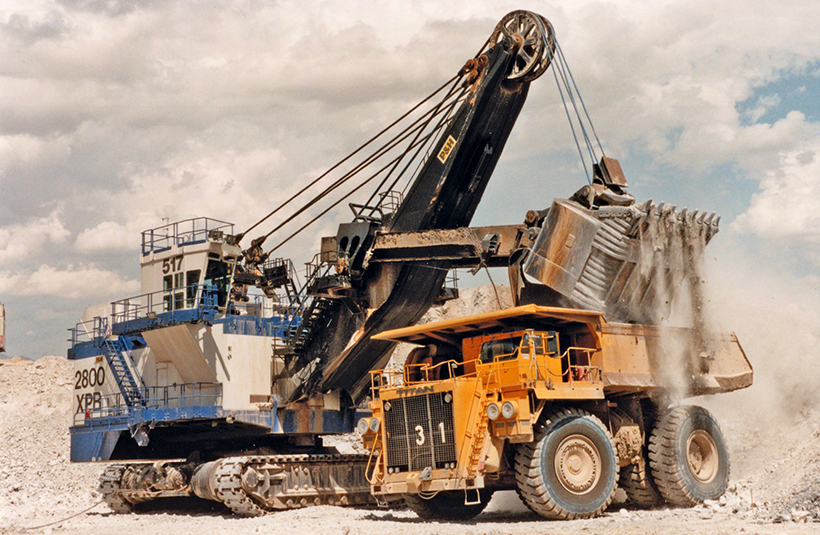
This LeTourneau-built Titan hauler is loaded by a P&H 2800XPB shovel at Mission Mine, Arizona in 1996.
In 1978, the Titan was moved from Eagle Mountain Mine to Kaiser Resources’ Balmer open pit coal mine near Sparwood, British Columbia, Canada. There it joined a fleet of other world record-beating, outsize machines including a fleet of 20 Unit Rig 200-ton capacity M-200 haulers, then the world’s largest, and the four P&H 2800 30-yard electric shovels, the largest built by P&H at that time.
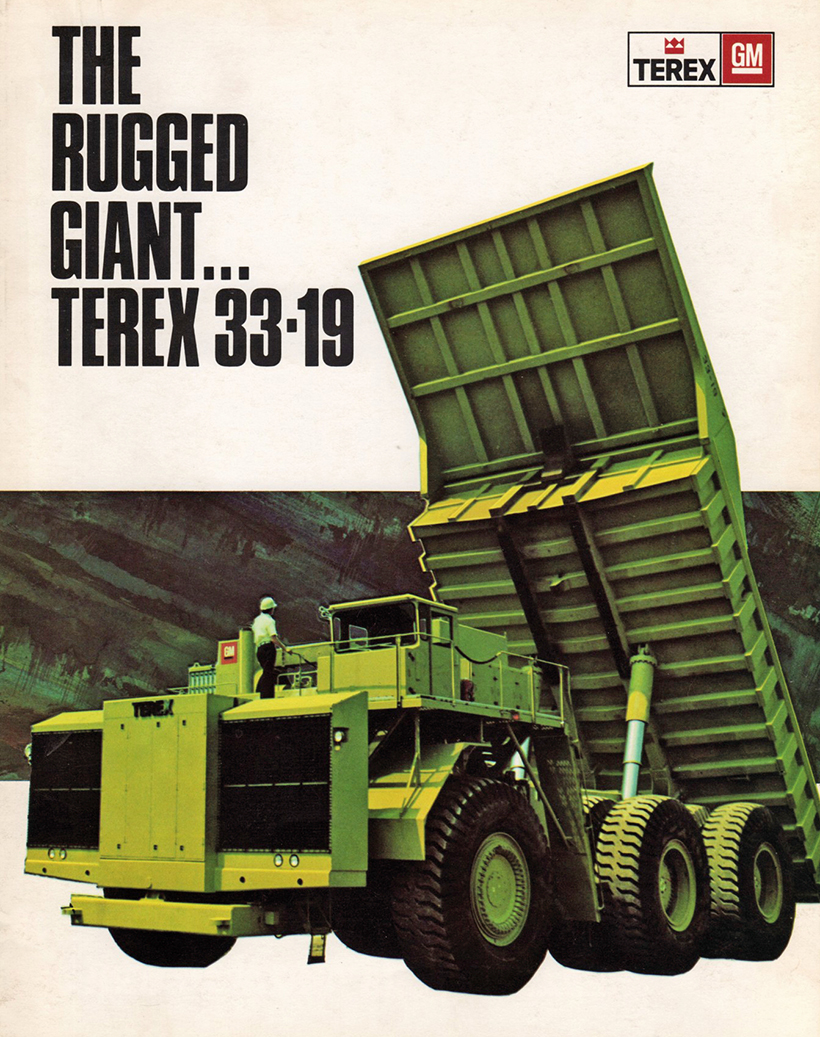
First publication announcing 350-ton capacity Terex 33-19 in 1974.
In 1983, the mine’s maintenance department carried out several modifications to the Terex Titan following the actual purchase of the unit from General Motors. Up to this time, the truck was leased from GM, and still considered a prototype vehicle. The mine’s decision to purchase the Titan was based on the fact that with a payload of 350 tons or more, it was cheaper to run per cubic yard than the mine’s 200-ton trucks. The modifications took the form of general upgrading of the hosing, frame strengthening and rear steering modifications. While at Balmer Mine the Titan was side-boarded and regularly carried 400 tons without difficulty.
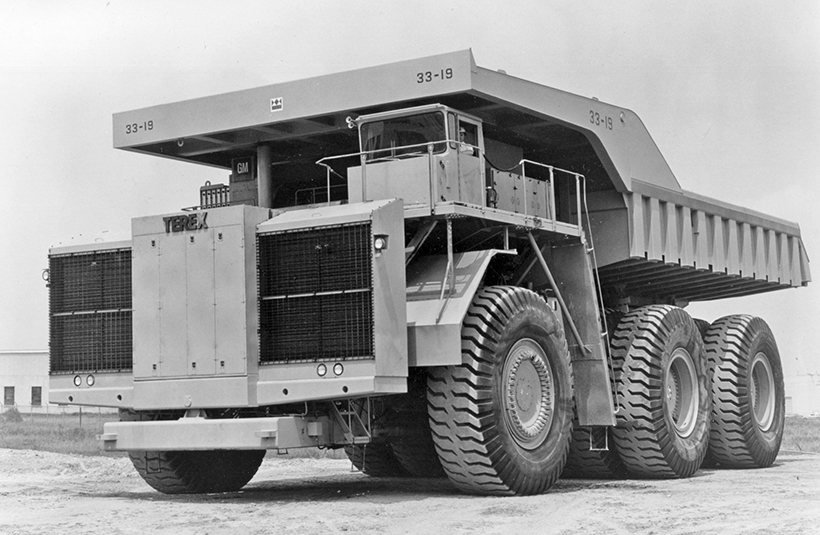
General Motors built the one-and-only Terex 33-19 at London, Ontario, Canada.
After corporate name changes from Kaiser Resources to BC Coal and then to Westar Mining Ltd, the mine passed into the hands of new owners who set up the Elkview Mining Corporation to continue operating the mine, renamed the Elkview Mine. The 33-19 Titan ran a productive life until retired from active duty in 1990. In 1993 owners Elkview Mining Corporation offered it as a gift to the Sparwood Chamber of Commerce. After intensive fundraising efforts and government grants, the truck was moved in pieces and re-assembled at a new site beside No.3 highway in Sparwood, where this unique piece of classic equipment remains on view as a tourist attraction.
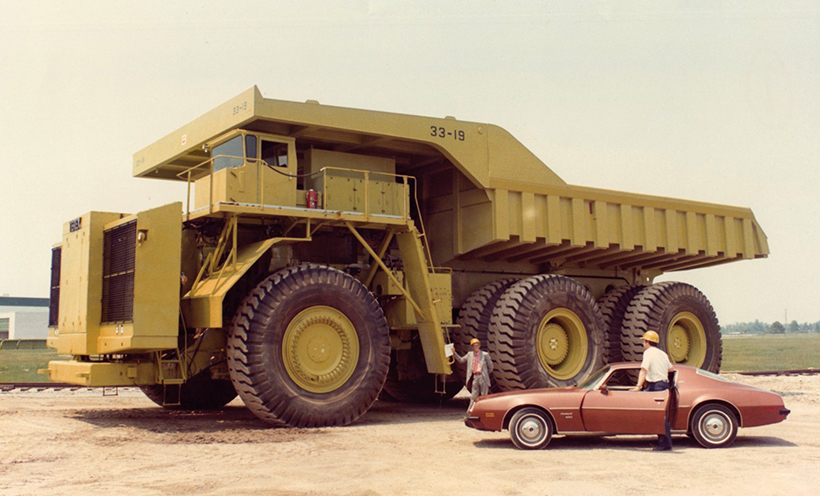
Unveiling of the GM Terex 33-19 with much publicity.
Elkview Mine is still very active today and produces approximately 7 million tons of coal annually. It is now operated by Teck Coal Ltd and employs some 920 people. Coal produced is defined as metallurgical quality and is shipped overseas to steel-making markets.
TEREX TO KOMATSU
The diesel-electric trucks being built at the Diesel Division, GM Canada Ltd plant in London, Ontario (their only source of manufacture) continued to be built there until February 1985. From January 1981 their brand name changed from Terex to ‘Titan’, mainly to distinguish themselves from the upheaval caused by IBH taking over Terex, and also because manufacturing components and electric drive trains aligned themselves with GM locomotives being built in the same factory. The 170-ton 33-15B received upgrades in 1981 to the 33-15C with cosmetic, electrical, hydraulic and other minor system upgrades. Engine and truck capacity remained the same. The last few 33-15B models were sold as Titans, as were all the GM-built 33-15Cs.
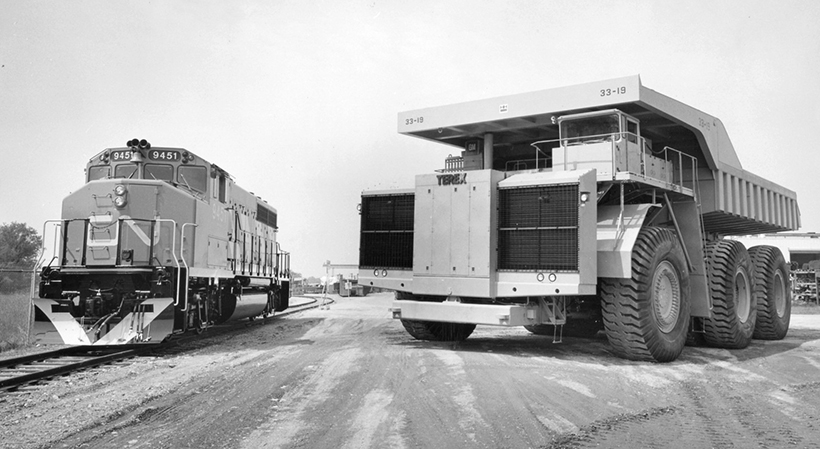
General Motors built the Terex 33-19 at its Canadian plant alongside its railway locomotives.
In 1985, GM parted company with the electric truck line when Marathon-LeTourneau Company purchased it, along with plans, drawings, patents and tooling. Manufacturing was transferred to LeTouneau’s main plant in Longview, Texas. The trucks included the Terex 33-15C and the world record-beating 350-ton 33-19, but since only one of the latter was actually built, only the former was continued by LeTourneau. Upgrades and revisions followed, and LeTourneau’s T-series appeared in 1987 with capacities ranging from 170 to 200 tons. In 1990, the 240-ton model T-2240 was added with options of either MTU or Detroit engines rated up to 2,250 horsepower.
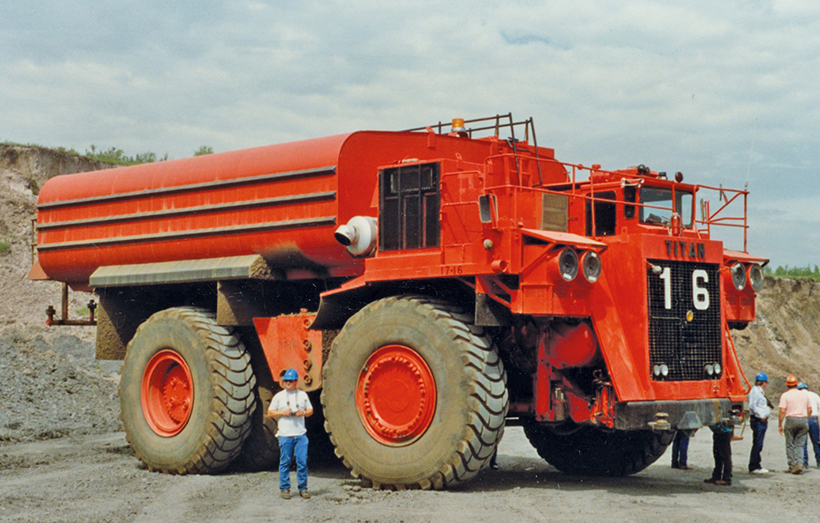
Titan 33-15C converted to a water truck in the Alberta oilsands surface mining operations.
Diminishing sales caused LeTourneau to discontinue its hauler line in 1995 and allow the company to concentrate on its large wheel loader line, log loaders and offshore drill rigs. The last hauler, a 200-ton T-2200, was shipped to Iron Ore Company of Canada in February 1996. In 2006, Marathon-LeTourneau Company changed its name to LeTourneau Technologies, Inc. Then in 2011 the company was purchased by Joy Global. In 2016 Komatsu purchased Joy Global which included the P&H line of electric mining shovels, blast hole drills (formerly Gardner-Denver), and walking draglines (formerly Page). This conglomerate is known today as Komatsu Mining Corporation.
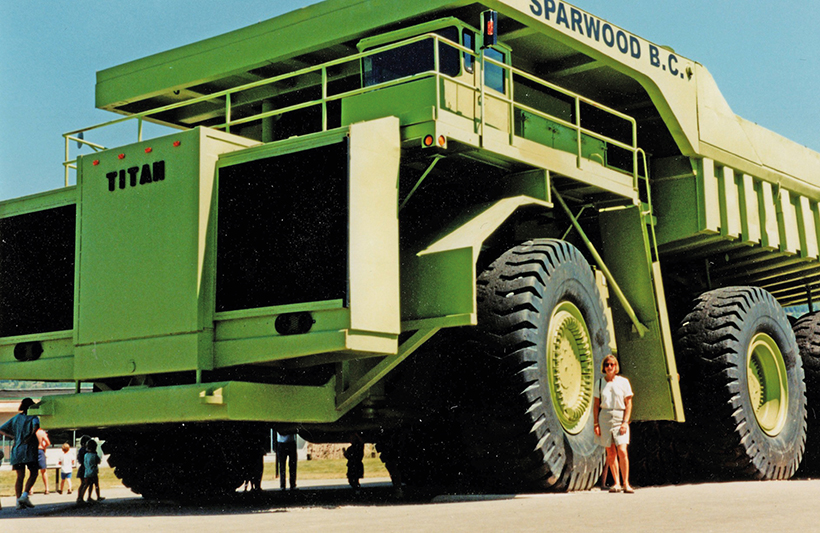
Keith Haddock’s wife, Barbara, stands beside the wheel of the Terex Titan 33-19 on public display at Sparwood, British Columbia, Canada.
This feature comes from a recent issue of Old Glory, and you can get a money-saving subscription to this magazine simply by clicking HERE
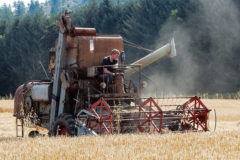
Previous Post
Classic combine harvesters still working hard!
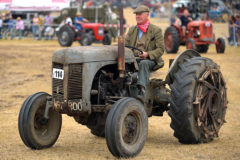
Next Post
The brilliant Welland Steam & Country Rally



